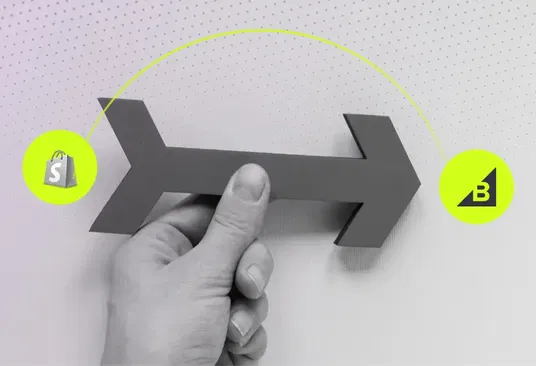Selling Alcohol Online: Compliance, Age-Gate, and Regional Restrictions

- Understanding the Legal Landscape
- Real-Time Age Verification Systems
- Regional Cart Logic and Delivery Restrictions
- Legal Warnings and Product Disclaimers
- Marketplace Platform Compliance
- Local Sales Tax Rules and Automation
- Technical Implementation Best Practices
- Frequently Asked Questions
- Key Takeaways
- Ready to Choose the Right Development Partner?
- About 1Center
Selling alcohol online presents unique challenges that go far beyond typical eCommerce compliance. From online ID scan integration for alcohol delivery to navigating complex marketplace restrictions for selling spirits online, alcohol retailers must implement sophisticated systems to remain compliant while delivering exceptional customer experiences.
The alcohol eCommerce market is projected to reach $42 billion by 2025, but success requires more than just putting products online. You need robust age verification, region-specific cart logic, automated tax calculations, and comprehensive legal disclaimers—all while maintaining conversion rates that justify the investment.
This guide covers everything from technical implementation to regulatory compliance, helping you build an alcohol eCommerce store that protects your business while maximizing sales opportunities. Whether you're launching a wine club, craft beer marketplace, or spirits retailer, these strategies will ensure your store meets all legal requirements while delivering the seamless experience customers expect.
Understanding the Legal Landscape
The alcohol industry operates under a complex web of federal, state, and local regulations that vary dramatically by location. The Three-Tier System, established after Prohibition, creates distinct roles for producers, distributors, and retailers—each with specific licensing requirements and operational restrictions.
Federal Regulations
The Alcohol and Tobacco Tax and Trade Bureau (TTB) oversees federal alcohol regulations, including labeling requirements, advertising restrictions, and interstate commerce rules. For eCommerce, this means ensuring all product descriptions, images, and marketing materials comply with TTB guidelines.
State-Level Complexity
Each state maintains its own alcohol control system, ranging from control states (where the government directly manages sales) to license states (where private businesses operate under strict licensing). This creates a patchwork of regulations that directly impact your eCommerce operations:
- Shipping restrictions: Some states prohibit direct-to-consumer alcohol shipments entirely
- Volume limits: Many states cap the amount of alcohol individuals can purchase monthly
- Product restrictions: Certain states ban specific alcohol types or ABV levels
- Licensing requirements: Each state requires different permits for online alcohol sales
"The biggest mistake alcohol retailers make is treating compliance as an afterthought. In this industry, your legal framework must be built into every aspect of your eCommerce platform from day one." - Sarah Mitchell, Alcohol Industry Compliance Attorney
Key Takeaway:
Before launching, conduct a comprehensive legal audit of every state where you plan to sell. Partner with specialized alcohol compliance attorneys and consider using compliance management platforms that automatically update regulations.
Real-Time Age Verification Systems
Online ID scan integration for alcohol delivery has evolved from simple age gates to sophisticated verification systems that validate identity in real-time. Modern alcohol eCommerce requires multi-layered verification that protects both customers and businesses from liability.
Beyond Simple Age Gates
Traditional "Are you 21?" pop-ups provide minimal legal protection and poor user experience. Today's compliance standards require identity verification that includes:
- Document scanning: Real-time ID verification using OCR technology
- Biometric matching: Facial recognition to match ID photos with live selfies
- Database verification: Cross-referencing against government databases
- Fraud detection: AI-powered systems to identify fake or altered documents
Implementation Best Practices
Successful age verification balances security with user experience. Leading alcohol retailers implement progressive verification that adapts to purchase patterns and risk levels:
Progressive Verification Framework:
- First-time buyers: Full ID scan with biometric verification
- Returning customers: Simplified re-verification for low-risk purchases
- High-value orders: Enhanced verification regardless of customer history
- Suspicious activity: Automatic escalation to manual review
For businesses focused on food & beverage eCommerce development, integrating these verification systems requires careful consideration of user flow, mobile optimization, and conversion impact.
"We saw a 23% increase in completed purchases after implementing progressive age verification. Customers appreciate the security, and we've eliminated chargebacks related to underage sales." - Marcus Chen, CTO of Premium Wine Collective
Regional Cart Logic and Delivery Restrictions
Building intelligent cart logic that automatically adjusts inventory, pricing, and shipping options based on customer location is essential for alcohol eCommerce compliance. This goes far beyond simple geo-blocking—modern systems must dynamically adapt to complex regional regulations.
Dynamic Inventory Management
Your product catalog must automatically filter based on location-specific restrictions. This includes:
- ABV restrictions: Some states limit alcohol content for certain product categories
- Product type bans: Everclear and other high-proof spirits are prohibited in many states
- Volume limitations: Monthly purchase limits vary by state and product type
- Seasonal restrictions: Some jurisdictions have time-based sales limitations
Smart Shipping Logic
Delivery restrictions create complex logistics challenges that require automated solutions. Leading alcohol retailers implement multi-layered shipping logic that considers:
Shipping Compliance Framework:
- State-level permissions: Automatic blocking for prohibited states
- County restrictions: Dry counties within otherwise permissive states
- Carrier limitations: FedEx, UPS, and USPS have different alcohol policies
- Signature requirements: Adult signature mandatory for all alcohol deliveries
- Time restrictions: No deliveries on Sundays in certain jurisdictions
"Our regional cart logic prevented over 2,400 compliance violations in the first year alone. The system pays for itself by avoiding legal issues and maintaining our licenses." - Jennifer Rodriguez, Operations Director at Craft Spirits Direct
Legal Warnings and Product Disclaimers
Legal warnings for alcoholic products on PDP must be comprehensive, visible, and compliant with both federal and state requirements. These disclaimers serve as crucial legal protection while educating customers about responsible consumption.
Required Federal Disclaimers
The TTB mandates specific health warnings on all alcoholic beverage marketing materials, including eCommerce product pages:
Mandatory Health Warning:
"GOVERNMENT WARNING: (1) According to the Surgeon General, women should not drink alcoholic beverages during pregnancy because of the risk of birth defects. (2) Consumption of alcoholic beverages impairs your ability to drive a car or operate machinery, and may cause health problems."
State-Specific Requirements
Beyond federal requirements, many states mandate additional disclaimers covering topics like:
- Age verification: Reminders about legal drinking age and ID requirements
- Delivery restrictions: Clear communication about shipping limitations
- Return policies: Alcohol-specific return and refund limitations
- Consumption warnings: Additional health and safety information
Effective disclaimer implementation requires strategic placement that ensures visibility without disrupting the shopping experience. This is particularly important for businesses developing comprehensive food & beverage eCommerce solutions that include alcohol products.
Marketplace Platform Compliance
Marketplace restrictions for selling spirits online create additional compliance layers that vary significantly between platforms. Understanding these policies is crucial for multi-channel alcohol retailers who want to maximize their reach while maintaining compliance.
Platform-Specific Restrictions
Major eCommerce platforms have developed distinct approaches to alcohol sales, each with unique requirements:
Platform Comparison:
- Amazon: Requires pre-approval and restricts to wine and beer in select states
- eBay: Prohibits most alcohol sales except collectible bottles (empty)
- Shopify: Allows alcohol sales with proper licensing and compliance tools
- BigCommerce: Supports alcohol sales with built-in age verification features
- WooCommerce: Flexible but requires custom compliance implementation
Compliance Documentation
Marketplace approval requires comprehensive documentation including licenses, insurance certificates, compliance procedures, and age verification protocols. Maintaining this documentation across multiple platforms requires systematic organization and regular updates.
"Platform compliance isn't just about getting approved—it's about maintaining that approval through consistent adherence to evolving policies. We've seen retailers lose marketplace access overnight due to compliance lapses." - David Park, eCommerce Compliance Consultant
Local Sales Tax Rules and Automation
Local sales tax rules for wine ecommerce and other alcoholic beverages create complex calculation requirements that go far beyond standard sales tax. Alcohol excise taxes, local option taxes, and special district fees can vary by zip code, requiring sophisticated automation systems.
Multi-Layered Tax Structure
Alcohol taxation involves multiple overlapping tax types that must be calculated accurately:
- Federal excise tax: Fixed rates per gallon based on alcohol type and content
- State excise tax: Varies dramatically by state and product category
- Local option taxes: Additional taxes imposed by counties and municipalities
- Sales tax: Standard sales tax rates that may exclude or include alcohol
- Special district fees: Additional charges for specific geographic areas
Automated Tax Calculation
Manual tax calculation is impractical for alcohol eCommerce due to the complexity and frequency of rate changes. Leading retailers implement automated systems that:
Tax Automation Features:
- Real-time rate updates: Automatic synchronization with tax authority databases
- Product classification: Accurate categorization based on alcohol type and content
- Geographic precision: Zip+4 level accuracy for local tax calculations
- Exemption handling: Automatic application of valid tax exemptions
- Reporting integration: Seamless connection to tax filing systems
Technical Implementation Best Practices
Successfully implementing alcohol eCommerce compliance requires careful technical planning that balances regulatory requirements with user experience. The key is building systems that automate compliance while maintaining the seamless shopping experience customers expect.
Architecture Considerations
Alcohol eCommerce platforms require specialized architecture that can handle complex business logic while maintaining performance:
- Microservices approach: Separate compliance services for age verification, tax calculation, and shipping logic
- Real-time APIs: Integration with verification services, tax databases, and regulatory updates
- Caching strategies: Intelligent caching that respects compliance requirements while optimizing performance
- Audit trails: Comprehensive logging for compliance reporting and legal protection
Mobile Optimization
With over 60% of alcohol purchases now initiated on mobile devices, compliance systems must work seamlessly across all platforms. This includes optimized ID scanning interfaces, touch-friendly age verification flows, and responsive disclaimer presentations.
Implementation Checklist:
- Partner with specialized alcohol eCommerce developers who understand compliance requirements
- Implement progressive age verification that balances security with user experience
- Build dynamic cart logic that automatically adjusts for regional restrictions
- Integrate automated tax calculation systems for accurate pricing
- Ensure all legal disclaimers are prominently displayed and legally compliant
- Test compliance systems across all target markets before launch
Frequently Asked Questions
1. What are the most critical compliance requirements for alcohol eCommerce?
The most critical requirements include robust online ID scan integration for alcohol delivery, comprehensive regional shipping restrictions, automated tax calculations, and prominent legal disclaimers. Age verification must go beyond simple pop-ups to include document scanning and biometric verification.
3. How do marketplace restrictions affect alcohol sales strategies?
Marketplace restrictions for selling spirits online vary significantly between platforms. Amazon limits sales to wine and beer in select states, while eBay prohibits most alcohol sales entirely. Success requires understanding each platform's specific policies and maintaining proper documentation for approval.
3. What legal warnings must appear on alcohol product pages?
Legal warnings for alcoholic products on PDP must include the mandatory federal health warning about pregnancy risks and impaired driving. Many states require additional disclaimers about age verification, delivery restrictions, and return policies. These must be prominently displayed and easily readable.
4. How complex are local sales tax rules for alcohol eCommerce?
Local sales tax rules for wine ecommerce and other alcohol involve multiple overlapping tax types including federal excise tax, state excise tax, local option taxes, and special district fees. Rates can vary by zip code and require automated calculation systems to ensure accuracy.
5. What age verification technologies are most effective?
Modern online ID scan integration for alcohol delivery combines OCR document scanning, biometric facial recognition, database verification, and AI-powered fraud detection. Progressive verification systems adapt security levels based on customer history and purchase patterns while maintaining user experience.
Key Takeaways
- Compliance must be built-in from day one - Retrofitting compliance into existing systems is expensive and risky
- Age verification requires sophisticated technology - Simple age gates provide minimal legal protection
- Regional restrictions require dynamic systems - Static geo-blocking isn't sufficient for complex alcohol regulations
- Tax automation is essential - Manual tax calculation is impractical due to complexity and frequent changes
- Marketplace policies vary significantly - Each platform has unique requirements for alcohol sales approval
Ready to Choose the Right Development Partner?
Building a compliant alcohol eCommerce store requires specialized expertise in both technology and regulations. Our team has helped dozens of alcohol retailers navigate complex compliance requirements while building high-converting online stores.
Schedule Your Free ConsultationAbout 1Center
1Center is a leading eCommerce development agency specializing in complex, regulated industries including alcohol, food & beverage, and health products. Our team combines deep technical expertise with comprehensive regulatory knowledge to build compliant, high-converting online stores.
We've helped over 200 businesses navigate eCommerce compliance challenges while achieving average conversion rate improvements of 35%. Our specialized approach to food & beverage eCommerce development ensures your store meets all regulatory requirements while delivering exceptional user experiences.
Written byPublished June 27, 2025
1Center


